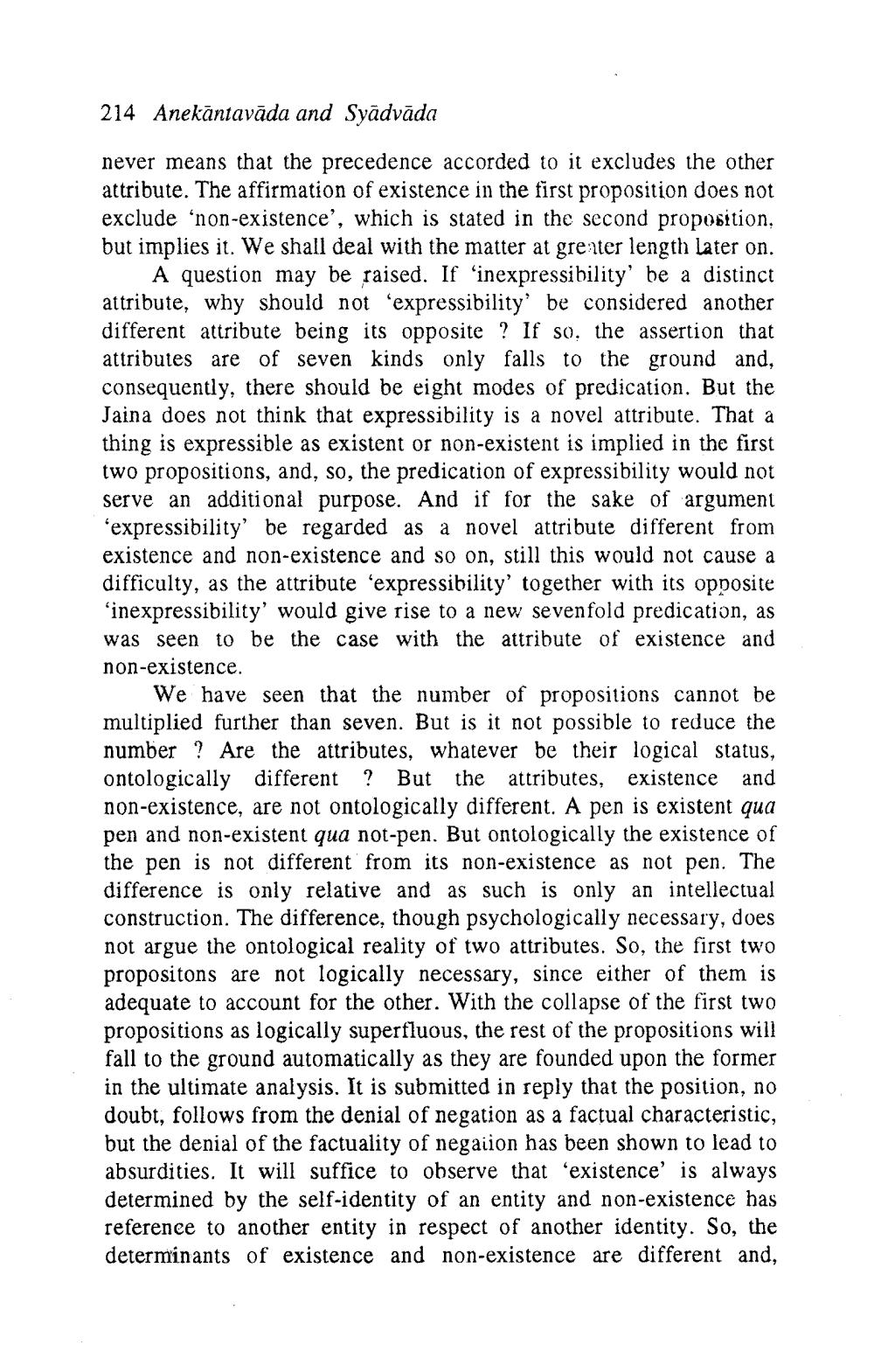________________
214 Anekāntavāda and Syādvāda
never means that the precedence accorded to it excludes the other attribute. The affirmation of existence in the first proposition does not exclude “non-existence', which is stated in the second proposition, but implies it. We shall deal with the matter at greater length later on.
A question may be raised. If 'inexpressibility' be a distinct attribute, why should not 'expressibility be considered another different attribute being its opposite ? If so, the assertion that attributes are of seven kinds only falls to the ground and, consequently, there should be eight modes of predication. But the Jaina does not think that expressibility is a novel attribute. That a thing is expressible as existent or non-existent is implied in the first two propositions, and, so, the predication of expressibility would not serve an additional purpose. And if for the sake of argument 'expressibility' be regarded as a novel attribute different from existence and non-existence and so on, still this would not cause a difficulty, as the attribute 'expressibility' together with its opposite ‘inexpressibility' would give rise to a new sevenfold predication, as was seen to be the case with the attribute of existence and non-existence.
We have seen that the number of propositions cannot be multiplied further than seven. But is it not possible to reduce the number ? Are the attributes, whatever be their logical status, ontologically different ? But the attributes, existence and non-existence, are not ontologically different. A pen is existent qua pen and non-existent qua not-pen. But ontologically the existence of the pen is not different from its non-existence as not pen. The difference is only relative and as such is only an intellectual construction. The difference, though psychologically necessary, does not argue the ontological reality of two attributes. So, the first two propositons are not logically necessary, since either of them is adequate to account for the other. With the collapse of the first two propositions as logically superfluous, the rest of the propositions will fall to the ground automatically as they are founded upon the former in the ultimate analysis. It is submitted in reply that the position, no doubt, follows from the denial of negation as a factual characteristic, but the denial of the factuality of negaiion has been shown to lead to absurdities. It will suffice to observe that 'existence is always determined by the self-identity of an entity and non-existence has reference to another entity in respect of another identity. So, the determinants of existence and non-existence are different and,




